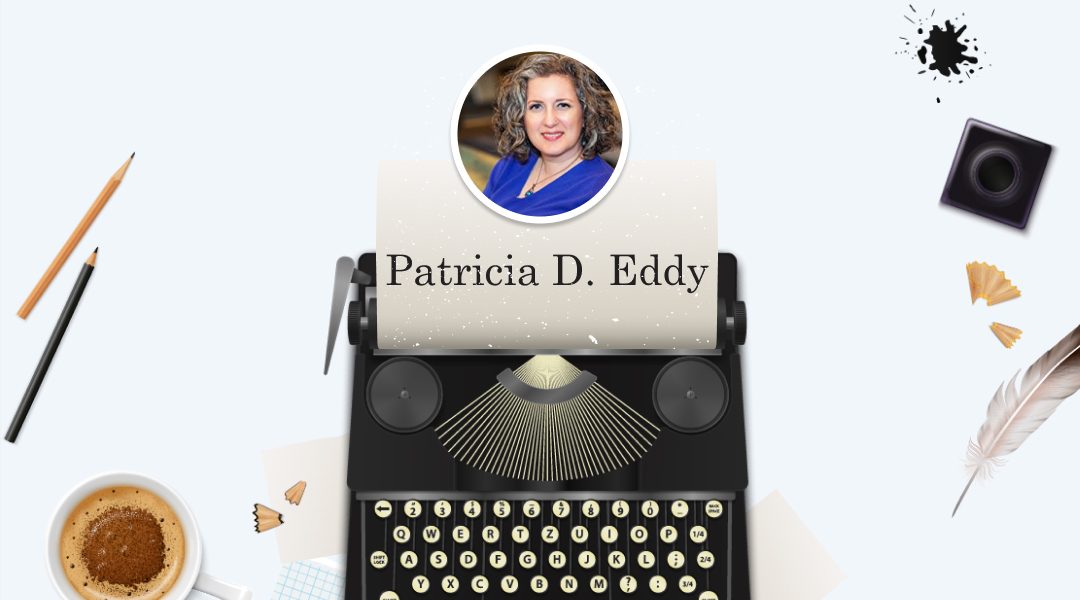If you’re interested in romance novels in all forms, you’ll love reading our author interview with Patricia D. Eddy.
Patricia is best known for writing paranormal romance series, including “The Elemental Shifters”, “By the Fates”, “In Blood” and many others. Her stories about werewolves, witches, vampires, and dragons are hard to miss. And her latest release “Rogue Protector” features some of the most beautifully-broken couples you would ever read about. Patricia also writes erotica and creates steamy stories about sexy doms, strong subs and military men and women. Patricia D. Eddy is a proud author of at least twenty-three titles. She has a very active reader group on Facebook, called Patricia’s Unstoppable Forces, where she connects with loyal fans and shares sneak peeks, behind the scenes and other useful information about her novels.
In this lovely author interview, Patricia talks about her favorite paranormal romance tropes and ideas, gives writing tips on character development, and shares what inspires her the most.
Read our interview with Patricia D. Eddy, and get that motivational boost you deserved.
Let’s get to it!
It was a great pleasure to design book covers for your paranormal “Elemental Shifters Series”. What would you consider to be the best paranormal romance plot tropes and ideas?
Oh my. That’s a very complicated question. For me, the best part of paranormal is seeing how authors design the world around the characters. I love the idea of fated mates, of course, but I also love to see one or both mates resisting the idea. Fighting for their own destinies, so to speak.
But really, I love any paranormal plot where the world is rich and well-designed. That’s the biggest challenge. For example, you can make up your own rules for magic, but you have to then stick to those rules. Don’t want there to be gravity in your world? No problem. But then you can’t have an object falling randomly.
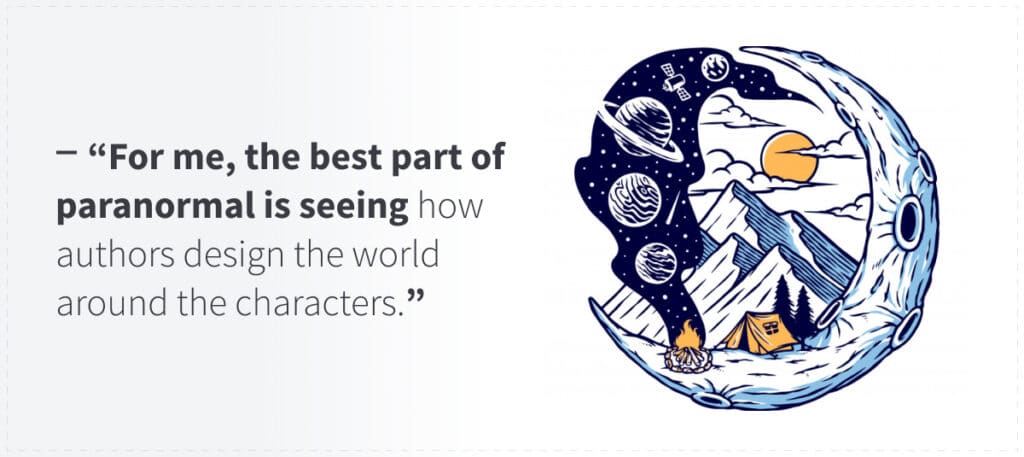
In terms of paranormal creatures? I love them all. My favorite at the moment? Vampires. But that changes so often. Shifters, witches, mages, even aliens. They’re all so amazing.
Most of your protagonists are strong and dynamic. Do you have any writing tips on character development?
I think every author struggles with this at one point or another. After all, most of us haven’t experienced the full impact of the situations we put our characters in. However, we’ve all experienced shades of the same emotions.
Have a character who’s been turned into a vampire? Well, in theory, none of us have actually experienced that. But we’ve likely been thrown into a situation where we suddenly felt out of our element. Maybe we started a new job. Maybe we had to give a talk on something we knew nothing about.
So, really, my best tip would be to identify the emotion you want your character to feel at the moment and then try to tie that emotion to something in your own life and extrapolate from there.
That, and watch other people. Not in a creepy way, of course. Just…observe how people interact with one another. For example, if you’re at a coffee shop, pay attention to how friends greet one another. Look at body language. Facial expressions. I also highly recommend all of the Thesaurus books by Becca Puglisi and Angela Ackerman. They’ve done an amazing job of compiling different ways to describe emotion without specifically saying “she was sad.” I love their books and refer to them all the time.
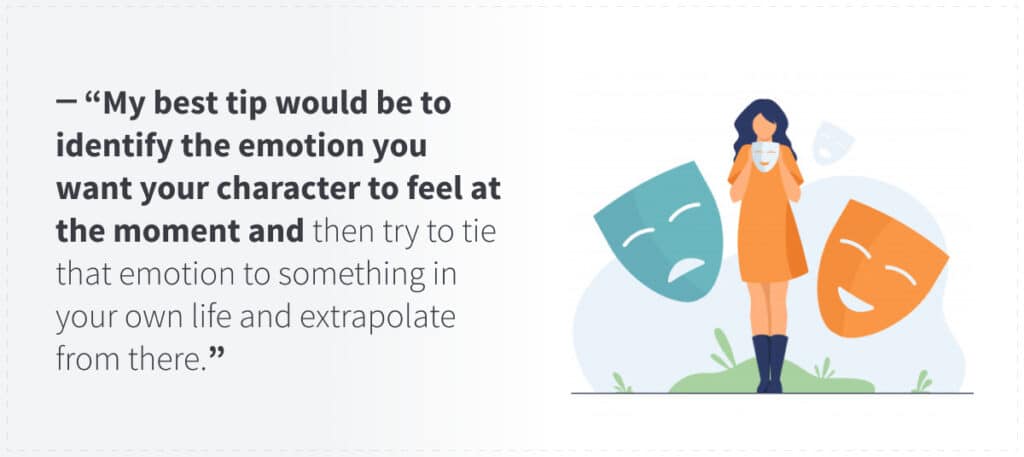
What author blogs or YouTube channels do you like to follow? Which of them had an influence on your writing?
Well, as I mentioned, the Thesaurus books by Becca Puglisi and Angela Ackerman are amazing. But I also listen to Lindsay Buroker on the Science Fiction and Fantasy Marketing Podcast and whenever she’s on The Six Figure Authors podcast, and when I have time, Joanna Penn. Honestly, though, I don’t often watch YouTube or other videos because I have ADHD and videos aren’t the best medium for me to absorb information. I tend to spend more time in writers groups than on blogs and YouTube channels for indie authors. But that’s just how I best learn. There are some amazing resources out there for those who do prefer to learn and study via podcast, YouTube, and blogs.
We absolutely loved your “Show And Tell Tuesday” idea on Facebook. What other ways do you use to keep in touch with and engage your readers?
I have a very active reader group, Patricia’s Unstoppable Forces. I try to mix things up there a lot. But the group is also a place of support. Most of my characters are what I call “Beautifully Broken.” That means that they may have physical or mental illnesses or challenges that make it difficult for them to feel like they’re worthy of love. I try to show that everyone is worthy of love and that we’re all beautifully broken. We all have flaws. We all have challenges. So in my reader group, we often talk about that.
On my Facebook page, I try to mix up promo with questions. Often, I’ll ask for help choosing between a couple of different things. For example, one of my most popular posts in the past six months was one that asked “Mountains or Caves?”
I asked because I was trying to decide where to set my next book, and I was really curious what my readers thought. Most didn’t just give me a one word answer, but told me why they picked the option they did. That gave me amazing insight into where I wanted the book to go and what readers might enjoy or not. (Oh, and I chose mountains.)
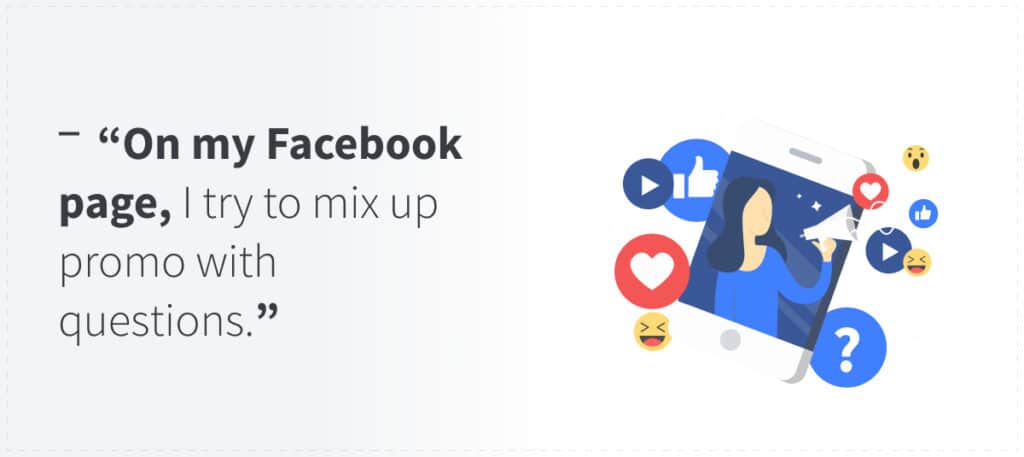
Have you ever experienced writer’s block? What are your suggestions on how to boost motivation as an author?
Oh, my. Yes. I think every author has gotten stuck at least once or twice. I don’t usually refer to it as writer’s block though. Because it’s not that I can’t write (usually). It’s that I can’t make a scene work the way I think I want it to work.
When that happens, I have to examine if what I think should happen in the scene really is what should happen in the scene. Often, I’m blocked because I’m trying to force my characters to do something that they don’t want to do. And only when I realize that do I find a way to move forward.
However, if I ever am truly blocked and nothing seems to be working, I’ll read a book or grab a writing prompt from a book, Tumblr or Pinterest and write something totally silly that I know will never make it to press. Something that’s not even my usual writing style. Then, there’s no pressure.
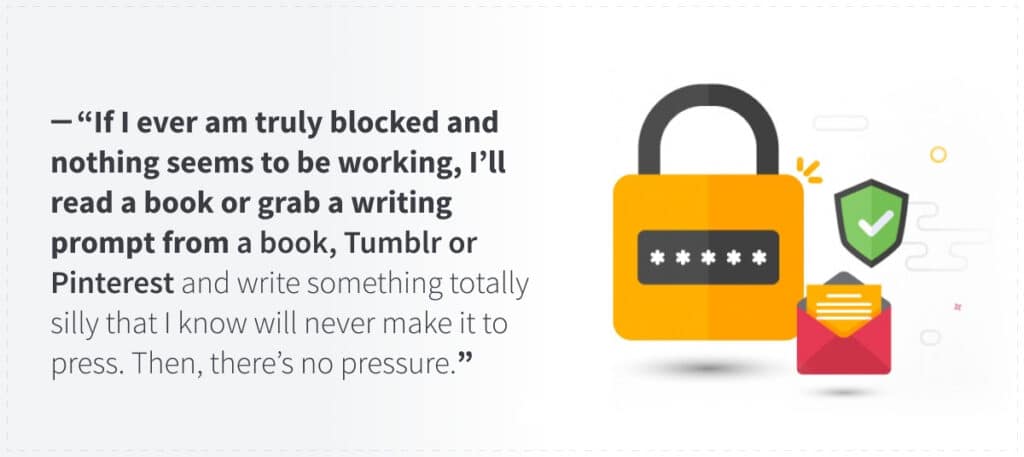
Our readers would love to hear what inspires you! Where do you get information and ideas for your books?
I read a lot of non-fiction. Because I write military men and women, I try to read as many autobiographies and biographies of soldiers, intelligence officers, and first responders. Not only do they keep me informed, but in many cases, these non-fiction books are read by the authors themselves. I can’t tell you how amazing (and horrifying in some ways) it is to hear about the aspects of war from someone who has lived it.
I also take inspiration from my own life and from stories my readers tell me. Because I write about beautifully broken characters, I can often find several people to talk to for inspiration and information on almost anything I want to write about. For example, for my last book, I spoke to three different readers to find out what it was like to live with asthma. I wanted to tell a story that was accurate, but to also show that just because someone has a serious medical condition, that doesn’t mean they can’t be a true hero.
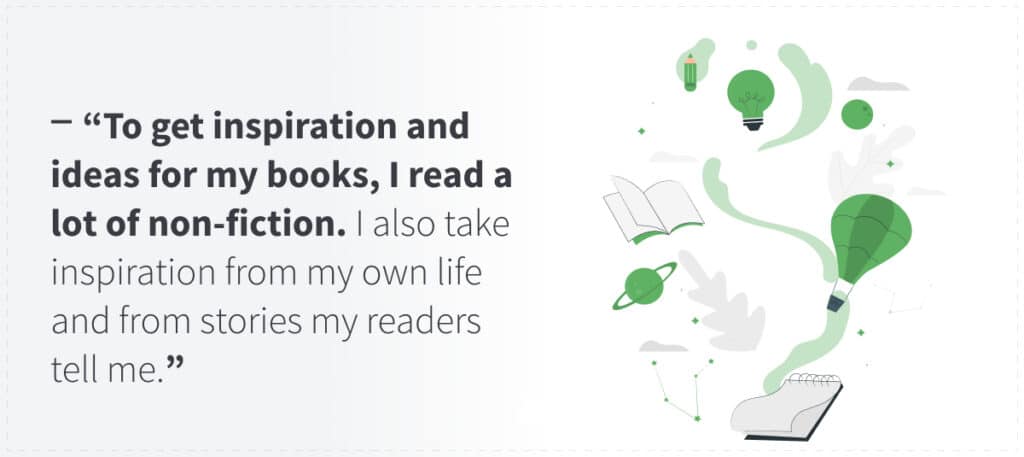
We’re extremely honored and grateful for the possibility to conduct an author interview with Patricia D. Eddy. Sincerely hope her creative ideas, solid advice, and excellent insights will give you all the motivation needed.
What did you like the most? Leave your questions in the comments section, and we’ll be right back with you.

